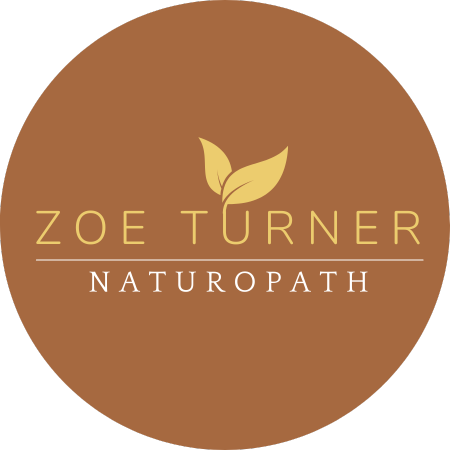Mental health and addiction are complex, multifaceted challenges that require a comprehensive approach to achieve lasting recovery. These issues are not just psychological—they are deeply interconnected with physical health, nutrient status, inflammation, and even food sensitivities. In this blog, we’ll explore how a functional medicine approach, combined with evidence-based practices, traditional medicine, and functional testing, can offer a powerful pathway to recovery.
The Role of Nutrient Deficiencies in Mental Health and Addiction
Nutrient deficiencies can significantly impact brain function and mood regulation, making them a critical component in both mental health and addiction recovery. Key nutrients like omega-3 fatty acids, B vitamins, magnesium, and zinc are essential for neurotransmitter production, stress response, and overall brain health. When these nutrients are lacking, individuals may experience heightened anxiety, depression, and a greater susceptibility to addictive behaviours.
Practitioners prioritise identifying and correcting nutrient deficiencies through personalised supplementation, herbs and dietary interventions. By restoring nutrient balance, we can support brain function, stabilise mood, and reduce the intensity of cravings, making recovery more manageable.
Antioxidant and Anti-Inflammatory Support
Chronic inflammation and oxidative stress are often underlying factors in mental health disorders and addiction. Inflammation in the brain, in particular, can disrupt neurotransmitter function and impair cognitive processes, leading to mood disorders and addictive behaviours.
Antioxidants like vitamins C and E, glutathione, and polyphenols from fruits and vegetables can neutralize oxidative stress, protecting brain cells from damage. Alongside this, anti-inflammatory nutrients such as omega-3 fatty acids, curcumin, and quercetin play a crucial role in reducing systemic and brain inflammation.
An anti-inflammatory diet, rich in whole foods like leafy greens, fatty fish, nuts, and seeds, is foundational in this approach. By minimizing inflammatory triggers and supporting the body’s natural antioxidant defences, we can enhance mental clarity, reduce mood swings, and promote long-term recovery.
The Importance of Exercise
Physical activity is another powerful tool in the recovery toolkit. Regular exercise has been shown to boost mood, reduce anxiety, and improve cognitive function. It also enhances neurogenesis, the process by which new neurons are formed in the brain, which is essential for recovery from addiction and mental health disorders.
Exercise also supports detoxification, enhances circulation, and helps regulate blood sugar levels, all of which are important for maintaining stable energy and mood. Whether it’s yoga, strength training, or simply walking, incorporating regular physical activity into a recovery plan can make a significant difference in outcomes.
Addressing Food Sensitivities and Intolerances
Food sensitivities and intolerances can exacerbate mental health symptoms and trigger addictive behaviours. For example, gluten and dairy sensitivities have been linked to increased inflammation and mood disturbances in some individuals. Identifying and eliminating problematic foods through an elimination diet or functional testing can help reduce symptoms and support a more stable mood.
Practioners often utilise food sensitivity testing as part of a comprehensive assessment to identify potential dietary triggers. By addressing these sensitivities, we can reduce inflammation, improve gut health, and support overall mental well-being.
The Role of Functional Testing in Recovery
Functional testing is a valuable tool used for an integrative medicine approach. It allows practitioners to uncover hidden imbalances that may be contributing to mental health disorders and addiction. Tests for nutrient deficiencies, hormone levels, inflammation markers, and gut health can provide valuable insights into the root causes of these conditions.
For example, comprehensive microbiome mapping can reveal imbalances in gut bacteria that may be affecting brain health, while hormone testing can identify issues like adrenal fatigue or thyroid dysfunction that could be contributing to mood disorders. Armed with this information, a personalized treatment plan can be developed to address the specific needs of each individual.
A Multidisciplinary Approach
Recovery from mental health disorders and addiction requires a multidisciplinary approach. Naturopaths often work alongside traditional medical professionals, psychologists, acupuncturists, and other specialists to provide holistic care. This collaborative approach ensures that all aspects of an individual’s health are addressed, from the physical to the psychological.
Fun Fact: A Tale of Two Remedies
Did you know that in ancient times, valerian root was a popular herbal remedy for anxiety and sleep disturbances? This plant-based treatment was widely used in medieval Europe, long before modern pharmaceuticals were available. In contrast, early allopathic medicine in the 19th century often relied on opiates, like laudanum, for similar purposes—though with significantly higher risks of addiction and side effects. While both approaches aimed to calm the mind, valerian’s gentle, natural action made it a safer choice for long-term use.
If you would like help please book an appointment with Zoe. 🌿💚

